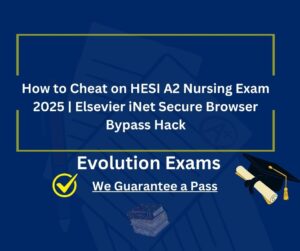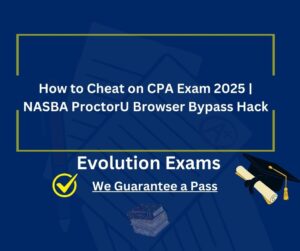How to Pass Exams in Record Time

How to Pass Exams in Record Time
Passing exams in record time requires a combination of effective strategies, time management, and a focused mindset. Here’s a step-by-step guide to help you optimize your exam preparation and perform efficiently:
1. Prioritize Key Topics
- Focus on High-Yield Areas: Identify the most important topics based on past exams, study guides, and your syllabus. These areas are often where the majority of questions will come from.
- Use Your Syllabus or Exam Blueprint: These documents highlight what’s most important and provide structure for your study.
Tips for Prioritizing Topics
- Consult Past Exams: Review past exam papers to identify recurring themes and high-frequency topics.
- Seek Instructor Guidance: Ask your instructors or professors for guidance on which topics are most crucial for the exam.
2. Create a Study Plan
- Time Blocking: Dedicate fixed time slots to study each topic. Avoid distractions during these periods.
- Chunk Study Sessions: Break your study time into focused intervals (e.g., 45-60 minutes), followed by short breaks (5-15 minutes). This is often referred to as the Pomodoro technique.
- Set Daily Goals: Ensure you have clear, achievable goals for each study session (e.g., mastering two chapters or solving 20 practice problems).
Crafting an Effective Study Plan
- Daily Review: Allocate time each day to review what you’ve learned. Repetition helps reinforce memory.
- Weekly Check-ins: Regularly assess your progress and adjust your study plan as needed.
3. Active Learning
- Practice Retrieval: Instead of just passively reading notes, actively quiz yourself or use flashcards to recall key concepts. This helps reinforce memory.
- Teach Someone Else: Explaining complex topics to others is a great way to ensure you understand the material thoroughly.
- Apply Real-Life Examples: Relating theoretical concepts to practical scenarios can enhance your understanding.
Techniques for Active Learning
- Interactive Learning: Engage with the material through interactive tools like quizzes and simulations.
- Group Study: Join or form a study group to discuss and reinforce key concepts.
4. Use Efficient Study Materials
- Summarized Notes or Mind Maps: Use condensed notes or visual aids to review major concepts quickly.
- Past Papers and Practice Exams: These are crucial for understanding the format and types of questions you’ll face. Simulate exam conditions to build speed and confidence.
- Video Tutorials: If you’re struggling with a topic, find online video resources that explain it in a simpler or more engaging way.
Choosing the Right Materials
- Official Resources: Prioritize official study guides and resources provided by the exam board.
- High-Quality Online Courses: Invest in reputable online courses that offer comprehensive coverage of the exam topics.
5. Stay Focused and Minimize Distractions
- Limit Digital Distractions: Turn off notifications or use apps like “Forest” or “Focus@Will” to stay focused while studying.
- Choose a Quiet Study Environment: Find a space where you can concentrate without interruptions.
Creating a Distraction-Free Environment
- Designated Study Space: Set up a dedicated study area that is free from distractions.
- Noise-Cancelling Headphones: Use noise-cancelling headphones to block out background noise.
6. Utilize Speed Reading and Skimming
- Speed Reading Techniques: Learn to skim texts and focus on key terms, bolded phrases, and bullet points. This allows you to get the gist of the material quickly.
- Highlight Key Ideas: As you read, highlight or underline the main points to create a visual guide for review.
Tips for Speed Reading
- Practice Regularly: Regular practice can significantly improve your reading speed and comprehension.
- Use a Pointer: Use your finger or a pen to guide your eyes as you read, which can help maintain focus and speed.
7. Optimize Your Mental and Physical State
- Get Enough Sleep: Sleep is critical for memory retention and mental clarity. Aim for 7-9 hours of sleep, especially before the exam day.
- Exercise and Eat Well: Regular physical activity boosts cognitive function. Eat a balanced diet rich in nutrients to fuel your brain.
- Stay Hydrated: Dehydration can affect concentration and mental performance. Drink plenty of water during study sessions.
Maintaining Peak Performance
- Regular Breaks: Take regular breaks to avoid burnout and maintain productivity.
- Mindfulness Practices: Incorporate mindfulness practices like meditation or deep breathing exercises to reduce stress and improve focus.
8. Master Time Management During the Exam
- Read Instructions Carefully: Before jumping into questions, make sure you understand what is required for each one.
- Time Allocation: Allocate a specific amount of time to each section or question. Stick to this limit to avoid spending too much time on any one problem.
- Answer Easy Questions First: This builds confidence and ensures you gain easy points before tackling harder ones.
- Review Your Answers: If time allows, review your answers and correct any obvious mistakes.
Effective Exam Strategies
- Mark Uncertain Answers: If you’re unsure about a question, mark it and return to it later.
- Stay Calm Under Pressure: Maintain a calm and composed demeanor to avoid panic and improve your performance.
9. Stay Positive and Manage Stress
- Positive Mindset: Remain confident in your preparation. Avoid overthinking or stressing too much.
- Mindfulness or Relaxation Techniques: Deep breathing or meditation can help reduce anxiety and increase focus.
Managing Exam Anxiety
- Visualization Techniques: Visualize yourself performing well on the exam to boost confidence.
- Positive Affirmations: Use positive affirmations to reinforce a confident and calm mindset.
Conclusion
By combining smart studying techniques with good time management and effective exam strategies, you can maximize your chances of passing exams in record time. Students can use the time saved to enhance their practical skills, gain experience, and prepare for their future goals, all while achieving excellent exam results.



